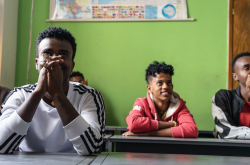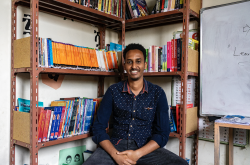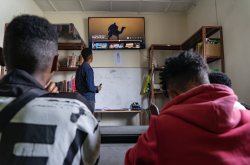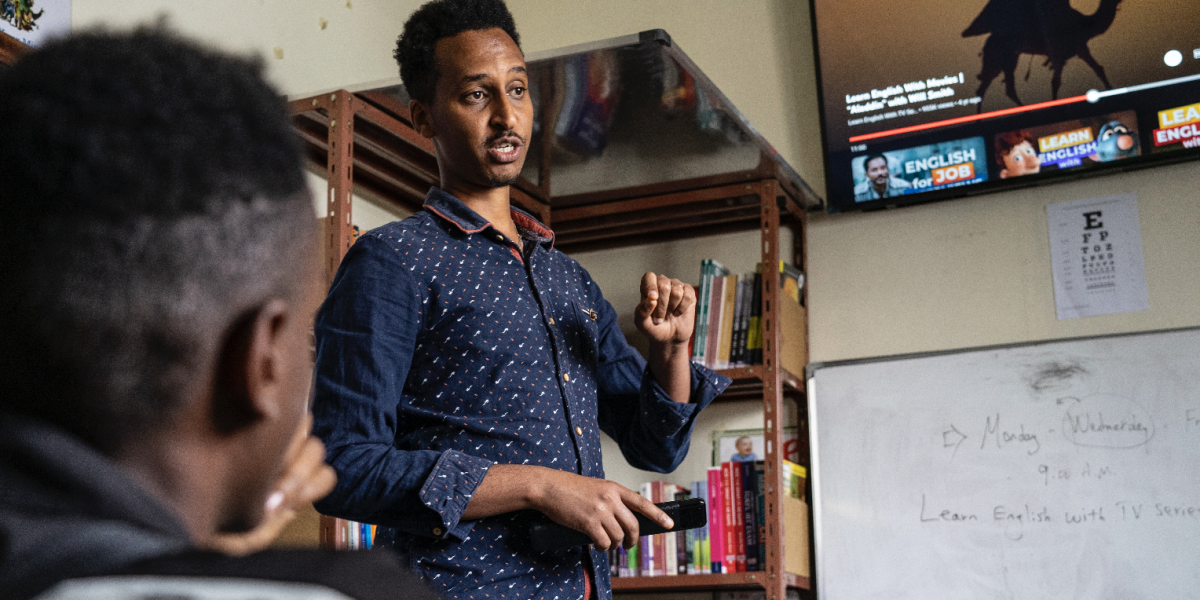Meet Thomas Beyene, a dedicated Eritrean Incentive Staff member at JRS, contributing to the transformative journey of young refugees. Since November 2019, he has been teaching English at the CPC (Child Protection Centre).
Learning English is not just about linguistic skills; it’s a gateway to international communication, future opportunities, and inclusion for refugees. The classes at JRS cover both Amharic and English, acknowledging the linguistic diversity among beneficiaries.
 The majority, being Eritreans, face a language barrier in Addis Ababa, where English and Amharic prevail. To facilitate integration into the community, JRS offers three levels of English classes: beginners, intermediate, and advanced. The age group ranges from 10 to 24 years old, with varying attendance throughout the year.
The majority, being Eritreans, face a language barrier in Addis Ababa, where English and Amharic prevail. To facilitate integration into the community, JRS offers three levels of English classes: beginners, intermediate, and advanced. The age group ranges from 10 to 24 years old, with varying attendance throughout the year.
During school holidays, around 100 students, predominantly girls, participate. In contrast, during the school period, the number reduces to 50/60, with a shift toward more male students. Thomas notes that most students show remarkable progress, often achieving conversational abilities in both Amharic and English within 3 to 4 months.
While language proficiency is a primary focus, the overarching goal is to enable these children to enroll in formal education. The emphasis is on empowering them to make choices, with a strong advocacy for joining formal schools. However, not all students opt for this path, and notably, it’s often boys who decide against formal Ethiopian education.

Understanding the significance of language in adapting to local practices and cultures, especially Amharic, Thomas highlights its role in mitigating cultural shock. Eritrean and Ethiopian cultures, despite some similarities, differ, and language acts as a bridge for integration.
In response to security concerns in Ethiopia and Addis, reflected in increased police checks and difficulties in movement, JRS initiated “Make-up Classes.” These recovery classes provide an opportunity for youth who miss regular lessons due to safety concerns. While not ideal, given the current exceptional circumstances, these classes aim to compensate for lost hours and offer a second chance for learning.
Despite the challenges, the biggest hurdle remains student attendance. JRS continues its unwavering commitment to providing quality education, recognizing that education is not just about learning a language; it’s about empowering individuals to shape their futures.


